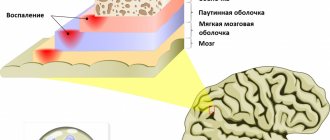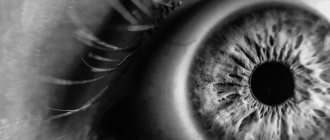Surely many people know first-hand about such an ailment as a head cold. The symptoms of this hypothermia are quite unpleasant. In addition, they can cause serious complications, develop into diseases leading to disability, and in some cases lead to death. That is why, if you have a headache, you should take immediate action. Moreover, it is almost impossible to independently understand the causes of cephalalgia. It is necessary to visit a medical facility and seek help from a specialist. Only a doctor can make the correct diagnosis and prescribe treatment.
Causes of hypothermia of the head
Many people think that this is only a winter disease, but this opinion is not true. You can catch a cold at any time of the year, even in a warm room. The main danger is drafts. Among the provoking factors, the following are noted:
- being outside without a hat in the autumn and winter;
- walking with wet hair in windy weather;
- prolonged exposure to air conditioning or incorrect settings of the device (especially in extreme heat);
- drafts in the apartment;
- driving in summer with the windows open;
- swimming or diving in cold water;
- drinking ice drinks and ice cream in large quantities.
This is an incomplete list of reasons that cause inflammatory processes in the head. However, if you expose yourself to such influences, unpleasant sensations will not keep you waiting long.
Symptoms
The first signs of hypothermia of the head appear within a few hours. First, cephalalgia occurs, which is a symptom of many diseases. However, you should be wary if this condition is added to:
- heat;
- shooting pain in temples;
- pressure surges;
- painful sensations when turning the neck;
- dizziness;
- drowsiness;
- chills;
- photophobia;
- noise in ears;
- fever;
- aching pain in the back of the head and frontal part of the head;
- weakness.
Depending on where the source of infection is located, inflammation can spread to the throat, nose and ears. In this case, a runny nose and pain in the affected organs appear, and sometimes nausea and vomiting are observed.
If at least one of the above symptoms is added to cephalgia, treatment should begin immediately.
My ear and the right side of my head hurt – what’s there?
When the right side of your head is blown and your ear hurts, what could it be? One might suspect:
- neuritis and trigeminal neuralgia;
- tunnel syndrome;
- neuralgia of the glossopharyngeal nerve;
- purulent otitis media and internal otitis;
- arthritis of the temporomandibular joint, including purulent;
- acute sinusitis.
Home therapy
Let us emphasize once again that when you have a headache, the best solution is to see a doctor. If for some reason this is not possible, you should begin treatment at home.
The first thing to do is to provide the patient with bed rest. It is necessary to limit your stay on the street, avoid drafts and overwork. It is important to follow the following recommendations:
- Drink plenty of liquid , for example, warm tea, fruit drinks and compotes, preferably with the addition of lemon or rose hips.
- Take an aspirin tablet.
- Avoid consumption of fatty and fried foods.
- Don't get too cold.
- Inhalation with chamomile and sage is recommended essential oils of eucalyptus and fir are also used
- If your throat hurts, gargle with herbal infusions .
- For a runny nose, vasoconstrictor drops provide a therapeutic effect .
- If it hurts in the cervical region, use warming ointments.
- Traditional medicine recommends warming with a bag of heated salt ; it should be applied to the place of maximum concentration of pain (hold for no more than 15 minutes).
- Do a light acupressure of the head .
- For unpleasant sensations in the ears, a compress around the shell of the organ will help.
- It is advisable to take vitamins to generally strengthen the immune system.
- For severe pain, purchase a special patch from the pharmacy.
My head blew: how to treat it?
- If you do not have the opportunity to see a doctor (weekend, late time of day, etc.), provide yourself with first aid. First, take a tablet of acetylsalicylic acid (aspirin). Nimesil , rubbing with Diclofenac and instilling the ears with Otinum will also help .
- You can also drink strong tea before bed, preferably using honey instead of sugar. It has medicinal properties.
Recipe for treatment
- If there is pain in the throat area, gargle . To do this, you can use tinctures of sage, calendula or oak.
- Go to bed wearing a warm hat so as not to aggravate the condition. If possible, light an aroma lamp at night. Essential oils that are good for relieving pain are pine needle oil, eucalyptus oil and orange . Lavender oil is characterized by relaxing properties .
- What to do if you have a blown head and shooting in your ears - make a compress . But, it should be applied not to the auricle, but around it. Soak several layers of gauze in vodka or alcohol. Make a hole and apply it to your ear. Cover the compress with a plastic bag, secure with cotton wool, and wrap with a bandage. In just a few hours the pain will disappear. Don't delay your visit to the doctor. Contact a specialist as soon as possible.
An important recommendation - do not walk in cold weather without a hat.
To prevent your head from being blown through, follow several recommendations. Do not sit near a window and wear hats. At the first sign of discomfort, consult a doctor to avoid causing life-threatening illnesses. Do not be ill!
We will answer you the most important why:
- Why you shouldn't be too nervous during pregnancy
- Why does the belly button stink, the smell from the navel
- Why does a newborn baby groan, arch and strain?
- Why do you drool in your sleep?
- Why do men's bellies grow?
Drug treatment
With the exception of the measures mentioned above, adults with hypothermia of the head are usually recommended to take the drug " Nimesil " , which, in addition to anti-inflammatory, also has analgesic and antipyretic properties. It is quite well tolerated and quickly affects the source of inflammation. It is important to remember that the medicine has a number of contraindications, so it should not be given to a child!
In addition, depending on the location of the inflammation, doctors prescribe the following medications:
- "Movalis" for pain relief;
- various ointments for rubbing into the neck muscles;
- Otinum drops for ear pain.
It is important to remember that painkillers and anti-inflammatory drugs are prescribed only by the attending physician.
If no manipulations bring results, and the symptoms only get worse, call a doctor immediately. This may indicate the presence of a serious illness. In addition, there is a possibility of exacerbations such as general poisoning of the body, an increase in the volume of fluid inside the skull and inflammation of the facial nerves.
What we pay attention to
If your head is blown, the symptoms are by no means limited to pain in this organ, although, of course, you cannot do without it. However, they also add:
- Blood pressure surges. For hypertensive patients, this is, one might say, an everyday matter, however, they should also pay attention to the “unscheduled” rise. People who do not suffer from hypertension should immediately be wary.
- Dizziness, or even a slight lack of coordination.
- Chills accompanied by a rise in temperature.
- A quiet buzzing in the ears. It feels like you can hear blood flowing in your head.
- Often it seems that the roots of the hair hurt (although they seem to not hurt).
It is clear that the signs are very vague and can correspond to a large number of diseases that occur when the head is blown. Only a doctor can decipher the symptoms, as well as make an accurate diagnosis, so you should not put off visiting him “for later.”
Possible complications and methods of their treatment
In the absence of competent and timely treatment, hypothermia of the head can lead to very serious complications in the form of chronic diseases that are difficult to treat. Among them:
- conjunctivitis;
- lymphadenitis (inflammation of the lymph nodes);
- sinusitis;
- otitis;
- tendonitis, which affects the tendons of the face and jaw.
These consequences can be avoided if you consult a specialist in time. Hypothermia of the head can develop into diseases with a high mortality rate, whose symptoms are very similar to colds.
Infectious brain abscess
A brain abscess is the formation of purulent foci in the main organ of the central nervous system. A serious consequence of this disease is dysfunction of the central nervous system. In addition, paralysis develops, vision, hearing and intellectual abilities of a person decrease.
An abscess appears for various reasons: it can become an inflammatory factor or be caused by infection entering the brain during advanced colds.
In this case, a headache that does not go away for more than 12 hours is considered an alarming signal. But you should also be wary if, in addition to this, the patient is found to have:
- weakness;
- photophobia;
- vomiting;
- heat;
- fever;
- increased sweating.
Less commonly, there is loss of coordination or muscle weakness (or cramps).
In addition, partial paralysis may occur.
If the abscess begins to be treated in the early stages, you can get by with a therapeutic method, which includes the use of antibacterial, restorative and anti-inflammatory drugs. If you delay contacting a specialist, only surgical intervention can help.
Meningitis
Among the main causes of the disease are staying in a draft and walking outside with a wet head. With meningitis, cephalgia is accompanied by constant nausea, pain is felt in the forehead or back of the head, which becomes unbearable with any movement (it is difficult even to blink). At the same time, we observe:
- burgundy rash;
- muscle cramps and pain;
- increase in body temperature to the maximum level;
- changes in mood (from drowsiness and apathy to strong excitement);
- vomit;
- diarrhea;
- clouding of consciousness;
- confusion of speech.
Attention! If a headache is accompanied by at least one of the listed symptoms, call an ambulance immediately. Meningitis is a dangerous disease that can be fatal.
Treatment of pathology is carried out only in a hospital setting with the use of strong antibiotics and antibacterial agents.
Prevention
Measures to prevent inflammatory processes of the main organ of the central nervous system and their complications are quite simple. They do not require much effort and time: you just need to pay attention to your health. There are several recommendations that will help avoid negative consequences:
- be sure to wear a hat in winter and autumn, especially in cold weather;
- do not sit in a draft;
- observe the rules of hygiene;
- avoid overheating and hypothermia of the head;
- boil water before drinking;
- be sure to dry your hair before going outside;
- wash vegetables and fruits thoroughly;
- The baby should wear a cap even in the room.
In addition, it is necessary to take care of strengthening the immune system. Do gymnastics and hardening, try to give up bad habits, and then even in the cold season, the likelihood of infectious and inflammatory processes will be minimized.









